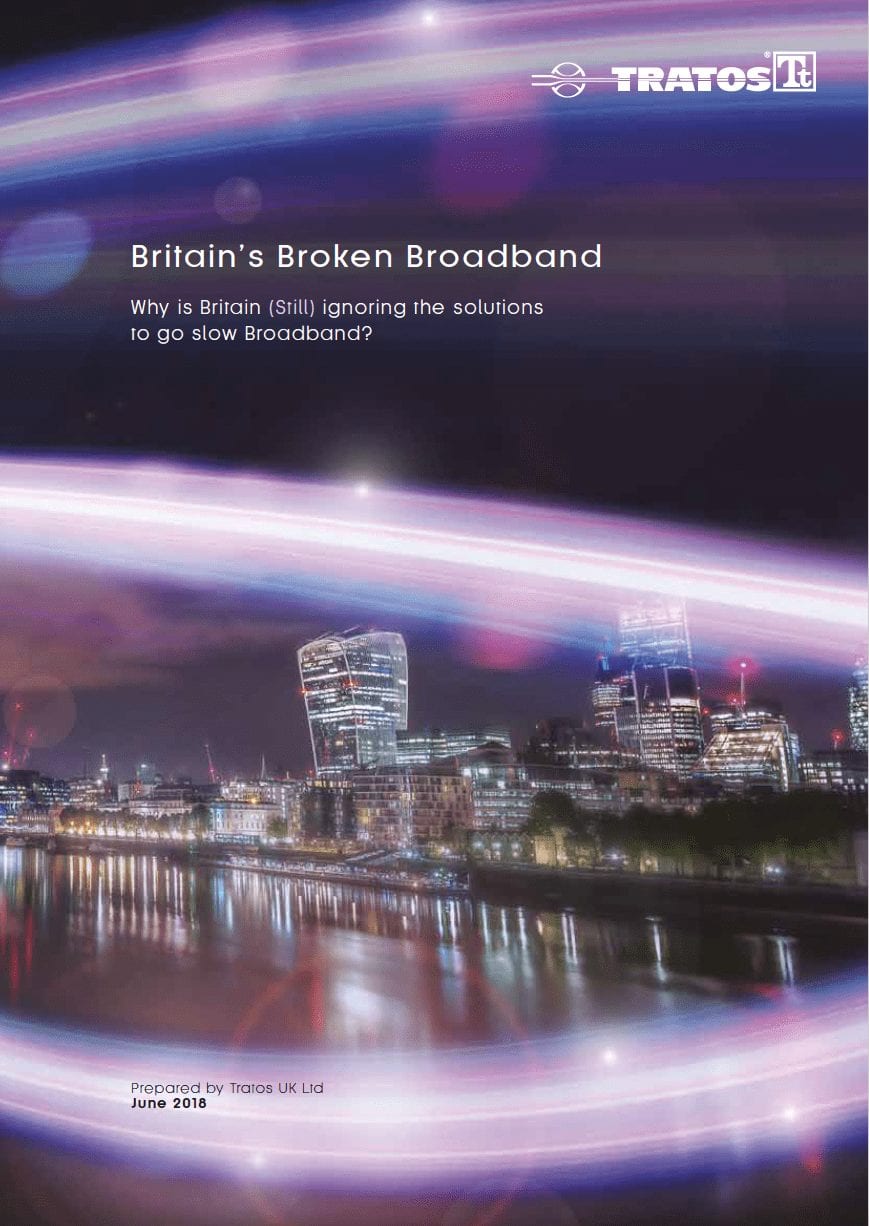White Paper ‘Britain’s Broken Broadband’ From Tratos – part 2
Fibre optic cable is pivotal to the success of the fourth industrial revolution. Yet if the `powers that be’ don’t wake up to the fact that the UK is being left behind and ditch copper for fast fibre, the country will be counting the cost for decades.
UK global cable innovator Tratos has revisited and updated its White Paper examining the status of Britain’s Fibre to the Home broadband aspiration two years after Ofcom declared swingeing changes.
The regulator proclaimed its commitment to up-rating download speeds and increasing accessibility for those in broadband blackspots back in 2016. Tratos’ Britain’s Broken Broadband paper looks at the gains, what is still left to do and the prospects for a Britain where change is on the way – but it isn’t rushing.
Ofcom insisted BT and Openreach split – the right move – but outcomes promised as a result of the split have been slow. There is talk of a wait of up to another two years to start to approach delivering speeds commensurate with a world economic power.
In the meantime the UK has again slipped down the fast-fibre league table, trailing some developing countries’ network performances and suffering the consequences.
Some vision is evident, in particular opening BT’s network infrastructure to other, more nimble, operators. An agreement may be in place, but again there has been little evidence of movement so far.
Only 3 per cent of UK homes have access to an FTTH (fibre to the property) connection compared with 79 per cent in Spain, for example¹.
A report from Ofcom (published May 2018) has all the hallmarks of a potential game-changer if what it sets out in its paper is followed through.
Tratos CEO Dr Maurizio Bragagni said: “The paper examines alternatives. If barriers are slow to move, then going round, over or under them should be explored. Gas, water, electricity are into-the-home routes explored and exploited in other countries and with all utilities investing now in a smart grid to monitor resources flowing into homes, fibre optic rather than copper could be adopted – and broadband can effectively piggyback. Change could get faster with the right level of commitment. And it is economically dangerous to wait.
“Even investment two years ago, when our original paper was published, would still see Britain left lagging by up to seven years as it struggles to catch up. How much longer must we wait?”
This latest stance from Ofcom acknowledges copper as the pinch point.
Openreach, BT’s infrastructure division, will have to repair faulty infrastructure and provide a ‘digital map’ of its duct and poles network, so that other providers can plan where to lay fibre.
Britain’s broadband continues to stifle the country’s economy as alternative routes to high speed connectivity and huge gains in download pace – available now – are ignored.
Tratos Ltd, a global player in fibre optic cable, points to some of the advanced technological solutions that are smart enough to bypass current network gatekeepers – and are available to UK.com today.
The innovation-led independent cable manufacturer presents a UK, European and global view of Britain’s position in its report and calls again for urgent action to protect the country’s position as a leading economic power.
You can download the new White Paper Britain’s Broken Broadband:
² https://www.ofcom.org.uk/__data/assets/pdf_file/0017/113543/Connected-Nations-update-Spring-2018.pdf











